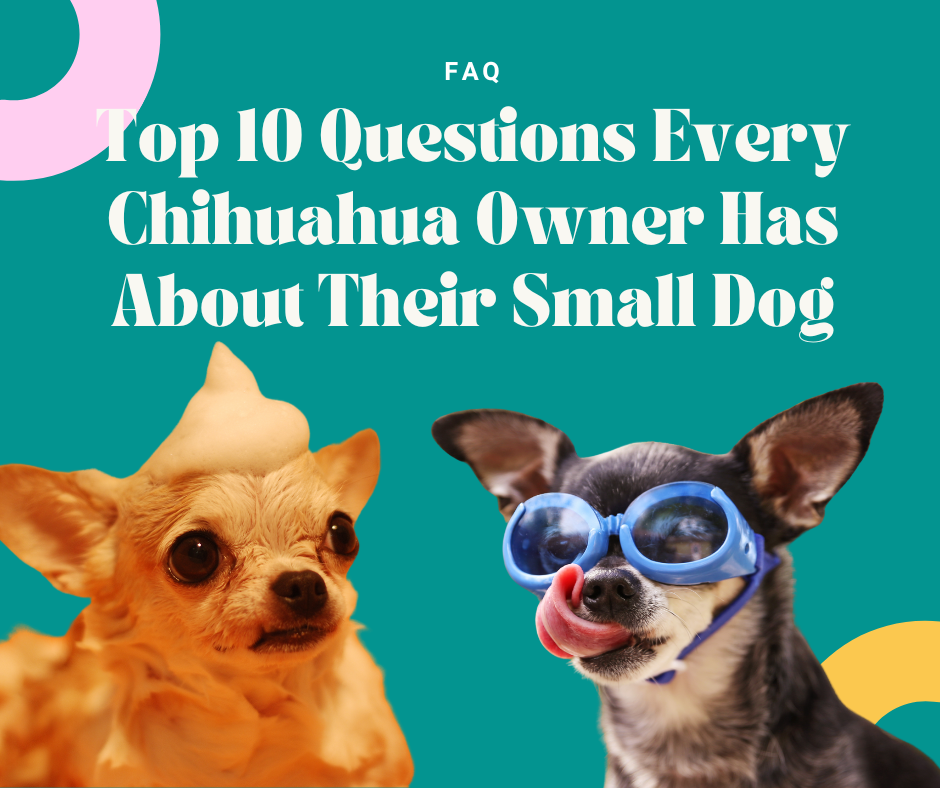Celebrating the Life of Your Dog: Tips for Healthy Grieving After Pet Loss

The Heartbreak of Losing a Pet Dog
For many of us, dogs are more than just pets; they are beloved family members who bring unconditional love, loyalty, and companionship into our lives. The bond we share with our furry friends is truly special, which makes the loss of a dog an incredibly painful experience. When a dog passes away, the grief can be overwhelming, leaving a profound void in our daily routines and our hearts.
Coping with the loss of a pet dog is a deeply personal journey, and there is no right or wrong way to grieve. Some may experience intense sadness, anger, or even guilt, while others may feel numb or disconnected. It's important to understand that these emotions are all valid and part of the grieving process.
During this difficult time, it's essential to be gentle with yourself and allow space for the grief to unfold naturally. Seeking support from loved ones, joining pet loss support groups, or speaking with a counselor can provide much-needed comfort and guidance. Remember, the pain you feel is a testament to the deep love you shared with your canine companion, and honoring that bond through remembrance can be a powerful healing force.
Some Commonly Asked Questions:
-
What are some special ways I can memorialize my dog? Consider creating a memory book, planting a tree, holding a ceremony, commissioning a pet portrait, or donating to an animal charity in their name.
-
How do I deal with the grief of losing my pet? Allow yourself to fully process the emotions. Share memories with others who knew your dog. Find comfort in your faith. Seek counseling if needed.
-
When is the right time to get another dog? There's no "right" timeline for this. Wait until you've sufficiently grieved and feel ready to open your heart.
Why Honoring Your Dog's Memory is Important
Losing a beloved pet dog is one of life's most difficult experiences. Dogs are not just pets - they are cherished family members who offer us unconditional love, unwavering loyalty, and priceless companionship. When they pass away, the sense of loss can be overwhelming. Honoring your dog's memory through a memorial or celebration of life is an important step in the grieving process. It provides closure, acknowledges the significant role your furry friend played in your life, and helps you heal.
A memorial gives you a chance to reflect on the countless joyful moments you shared and the ways your dog enriched your world. It's a time to celebrate the beautiful life they lived and the incredible bond you formed. Commemorating your dog creates a legacy that ensures they will never be forgotten. The act of planning a memorial can be therapeutic, as it encourages you to reminisce about happy memories and focus on the profound impact your dog had on you and your loved ones.
Grieving is a highly personal journey, and honoring your dog's life in a meaningful way can bring immense comfort during this painful transition. It's a vital part of the healing process that helps you find peace while keeping the spirit of your beloved companion alive in your heart forever.
Ideas for Dog Memorials and Remembrance
Cremation and Urn: One of the most popular options for memorializing a beloved pet is cremation. You can keep your dog's ashes in a decorative urn at home, or even have a small portion of the ashes incorporated into a piece of memorial jewelry. Many pet cremation services offer a variety of urn styles and materials to choose from.
Custom or Commissioned Artwork: Displaying a piece of art that captures the look and personality of your dog can make their presence known to all who enter your house. If your dog is a chihuahua, browse our collection of art prints or purchase a custom pet portrait.
Planting a Tree: Planting a tree in your dog's memory can be a living tribute that continues to grow and thrive. Choose a species that is significant to you, and plant the tree in a special location. You can even bury a small portion of your pet's ashes beneath the tree.
Making a Donation: Consider making a donation to an animal shelter, rescue organization, or veterinary clinic in your dog's name. This is a meaningful way to honor your pet's life by helping other animals in need. Some organizations will even send you a certificate or plaque acknowledging your tribute donation.
Memorial Service or Ceremony: Just as we honor the passing of human loved ones, you can hold a small memorial service or ceremony for your dog. This could be a simple backyard gathering where friends and family share stories and memories. Some pet owners choose to bury a portion of the ashes and hold a graveside service.
Personalized Memorial Options
Honoring the unique bond you shared with your beloved pet through personalized memorial items can provide immense comfort during the grieving process. Custom pet urns allow you to keep a physical reminder of your furry friend close by, adorned with engravings, paw prints, or even a favorite photograph. Engraved markers or stones in your backyard or a special outdoor location can create a dedicated space for reflection and remembrance.
For those who cherish visual memories, creating a photo collage or album showcasing your dog's life journey can be a heartwarming tribute. Compile images from puppyhood to their golden years, capturing their spirit and the countless cherished moments you shared. Memory boxes are another meaningful way to preserve tangible reminders, such as a favorite toy, collar, or even a lock of fur, keeping the essence of your companion near.
These personalized memorial options not only honor the unique bond you shared but also serve as a therapeutic outlet, allowing you to celebrate the life of your beloved pet in a way that resonates deeply with your heart.
Coping with Grief After a Dog's Death
The loss of a beloved pet can trigger a deep sense of grief and mourning. Dogs become cherished members of our families, offering unconditional love and companionship. When they pass away, the pain can be overwhelming. It's important to understand that grieving the loss of a pet is a natural and valid process.
Grief manifests differently for everyone, but common experiences include sadness, anger, guilt, and a profound sense of emptiness. Allow yourself to fully feel and express these emotions without judgment. Crying, journaling, or talking to supportive friends and family can provide a healthy outlet.
During this difficult time, be gentle with yourself and practice self-care. Engage in activities that bring you comfort, whether it's taking a walk in nature, listening to soothing music, or indulging in your favorite hobbies. Maintaining a routine and staying socially connected can also help ground you.
Consider joining a pet loss support group, either in-person or online. Sharing your experiences with others who understand the depth of your loss can be incredibly healing. Professional counseling or therapy may also be beneficial if you find yourself struggling with intense or prolonged grief.
Remember, there is no set timeline for grief. The healing process unfolds differently for everyone. Be patient and kind to yourself as you navigate this challenging journey. Your furry friend would want you to find peace and cherish the beautiful memories you shared together.
Helping Children Understand and Cope
The loss of a beloved pet can be particularly difficult for children to process. Dogs often become integral members of the family, and their absence can leave a profound void. It's essential to approach the subject of death with honesty, empathy, and age-appropriate language.
For younger children, use simple explanations like "Buddy has gone to sleep and won't wake up anymore." Avoid euphemisms that could confuse them, such as "lost" or "went away." Reassure them that the dog felt no pain and that the family loved them deeply.
Involve children in creating a memorial for their furry friend. Encourage them to draw pictures, write stories, or make crafts celebrating the dog's life. These activities can be therapeutic outlets for their grief. You could also hold a small ceremony where children can share happy memories and say goodbye.
Children may experience a range of emotions, including sadness, anger, or guilt. Validate their feelings and provide a safe space for them to express themselves. Maintain open communication and be prepared to answer questions patiently.
If a child seems to be struggling excessively, consider seeking professional support from a counselor or therapist specializing in child grief. With time, love, and understanding, children can learn to cherish the beautiful moments shared with their furry companion.
When is the Right Time for a New Dog?
Deciding when to welcome a new dog into your home after the loss of a beloved pet is a deeply personal decision. There is no universal timeline, as the grieving process is unique for every individual and family. However, there are several factors to consider that can help guide your choice.
Factors to Consider:
-
Emotional Readiness: Allow yourself and your family ample time to grieve and process the loss. Rushing into a new dog ownership before you've healed can lead to unfair comparisons or transferring unresolved emotions onto the new pet.
-
Living Situation: Evaluate if your current living situation is conducive to welcoming a new dog. Consider factors like housing, work schedules, and any significant life changes on the horizon.
-
Children's Emotions: If you have children, involve them in the decision-making process. Ensure they've had time to grieve and are emotionally prepared to form a new bond with a furry companion.
Making the Decision as a Family:
The decision to get a new dog should involve the entire family. Open and honest discussions can help gauge everyone's readiness and ensure a smooth transition. Consider each family member's emotional needs, expectations, and responsibilities regarding a new pet.
Preparing for a New Dog:
Once you've collectively decided to welcome a new furry friend, take the necessary steps to prepare your home and lifestyle. Research different breeds or consider adopting from a shelter or rescue organization. Ensure you have the proper supplies, such as food, toys, bedding, and any necessary training materials. Involve the whole family in the preparation process to foster a sense of excitement and ownership.
Remember, there is no set timeline for when to get a new dog after a loss. Trust your instincts, listen to your family's needs, and make the decision that feels right for your unique circumstances. A new dog can never replace the one you've lost, but they can bring joy, companionship, and help heal your heart.
Creating Lasting Memories
Preserving the memories of your beloved dog is a meaningful way to honor their life and the special bond you shared. Consider compiling photos and videos into a digital album or printed photo book. This allows you to relive cherished moments and reflect on the joy your furry friend brought into your life.
Writing about your dog can be a therapeutic and healing experience. Capture their unique personality, quirks, and the adventures you had together in a journal or memoir. Share funny anecdotes, heartwarming moments, and the valuable life lessons they taught you.
Symbolic jewelry or artwork featuring your dog's name, paw print, or a meaningful symbol can serve as a tangible reminder of their presence. Commissioning a custom piece from a skilled artist or crafting it yourself can be a deeply personal way to keep their memory close to your heart.
Grief Support Resources
Losing a beloved pet can be an incredibly difficult and painful experience. While the grieving process is deeply personal, it's important to remember that you don't have to go through it alone. There are various support resources available to help you cope with the loss of your furry friend.
Pet Loss Hotlines: Several organizations offer free pet loss hotlines staffed by trained volunteers who understand the unique bond between humans and their pets. These hotlines provide a compassionate listening ear and can offer guidance on navigating the grieving process.
Online Forums and Communities: The internet has made it easier than ever to connect with others who have experienced similar losses. Online forums and social media groups dedicated to pet loss can provide a supportive community where you can share your feelings, seek advice, and find comfort in knowing you're not alone.
Counseling Services: For those struggling with more intense grief or finding it difficult to cope, seeking professional counseling can be beneficial. Many therapists and counselors specialize in pet loss and can provide valuable coping strategies and emotional support during this challenging time.
Remember, grief is a natural and valid response to the loss of a beloved pet. Don't hesitate to seek out the support you need to help you through this difficult journey.
Celebrating Your Dog's Life Story
One of the most meaningful ways to honor your beloved dog's memory is to celebrate their life story. Share favorite memories, recount funny moments, and reflect on the profound impact they had on your life. This can be a deeply healing process, allowing you to focus on the joy and love your furry friend brought rather than dwelling on their absence.
Gather photos, videos, and mementos that capture your dog's unique personality and the special bond you shared. Create a photo album, slideshow, or memory box to cherish these treasured keepsakes. Encourage family members to contribute their own stories and anecdotes, ensuring your dog's vibrant spirit lives on through collective reminiscence.
Consider hosting a small gathering or virtual memorial where loved ones can come together to swap heartwarming tales and pay tribute to your faithful companion. Laughter through shared humor and recognizing the quirks that made your dog so endearing can provide immense comfort during this difficult time.
If you have children, involve them in the celebration by having them draw pictures, write poems, or make crafts honoring their furry friend. This creative expression not only aids in the grieving process but also fosters cherished memories they can hold dear.
Celebrating your dog's life story is a powerful way to keep their spirit alive and honor the unconditional love and loyalty they bestowed upon your family. By focusing on the countless joys they brought into your lives, you can find solace and gratitude amidst the sorrow of their passing.





Comments